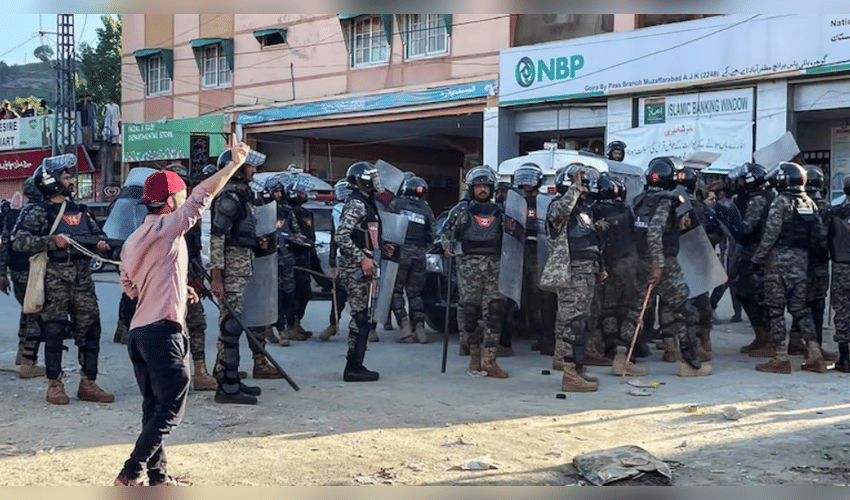Asia In News
Thousands Rally in PoK Demanding Urgent Structural Reforms Amid Massive Protests

Pakistan-Occupied Kashmir (PoK) is currently witnessing one of its most significant civil uprisings in recent history, as thousands of residents flood the streets demanding urgent structural reforms and basic rights that they claim have been ignored for decades. The protests, orchestrated by the Awami Action Committee (AAC), have triggered a widespread shutdown across the region, including road blockades and halted transport, with citizens voicing profound dissatisfaction related to political representation, economic neglect, and governance issues.
At the heart of the demonstrations is a 38-point demand charter issued by the AAC, which calls for the elimination of 12 legislative assembly seats reserved for Kashmiri refugees living in Pakistan—seats that locals argue diminish the political voice and self-governance of the native PoK population. Additionally, protestors are seeking subsidized flour, fairer electricity tariffs connected to the Mangla hydropower project, and the honest implementation of long-promised reforms that have repeatedly been delayed by the federal government. Activists emphasize that their campaign is not against any institution per se but a fight for fundamental rights that have been withheld for over 70 years.
The government’s response has been notably forceful. Islamabad has deployed thousands of troops to key towns and sealed city entry and exit points in an effort to quell the unrest and prevent protestor mobilization. Internet services were cut off from midnight to disrupt communication and coordination among demonstrators. Despite heavy security measures, protestors have maintained large-scale peaceful demonstrations, chanting slogans that call for justice and freedom from what they consider an imposed occupation.
Previous attempts at dialogue between AAC leaders and government officials collapsed after prolonged negotiations failed to reach a consensus, particularly on issues of political privilege and governance reforms. This breakdown has intensified the protest movement and increased regional tensions. The protests have sparked concern over the economic stagnation and social neglect in PoK. Many citizens complain about inadequate healthcare, poor education, unreliable infrastructure, and rampant corruption, which collectively undermine their quality of life. The region has seen similar unrest in recent months, including blockades on vital routes like the Karakoram Highway, which connects Pakistan to China under the China-Pakistan Economic Corridor.
Public support for the protests extends to local civil society groups, lawyers, and business communities, many of whom are urging the government to address these grievances through dialogue rather than repression. Traders in Muzaffarabad, a major city in PoK, allowed shops to open briefly before the strike to let residents stock up on essentials, highlighting how deeply the protests affect daily life.
These ongoing demonstrations in PoK underscore a critical demand for political reform and economic justice which Karachi and Islamabad have struggled to address effectively. The situation remains tense and fluid, with the potential for these protests to influence broader geopolitical dynamics in the Kashmir region significantly. This uprising serves as a stark reminder of the long-standing issues facing Pakistan-occupied Kashmir, where calls for autonomy and rights continue to challenge the status quo. The global community watches closely as the region navigates these turbulent times, hoping for a peaceful resolution that respects the aspirations and dignity of the PoK people.



